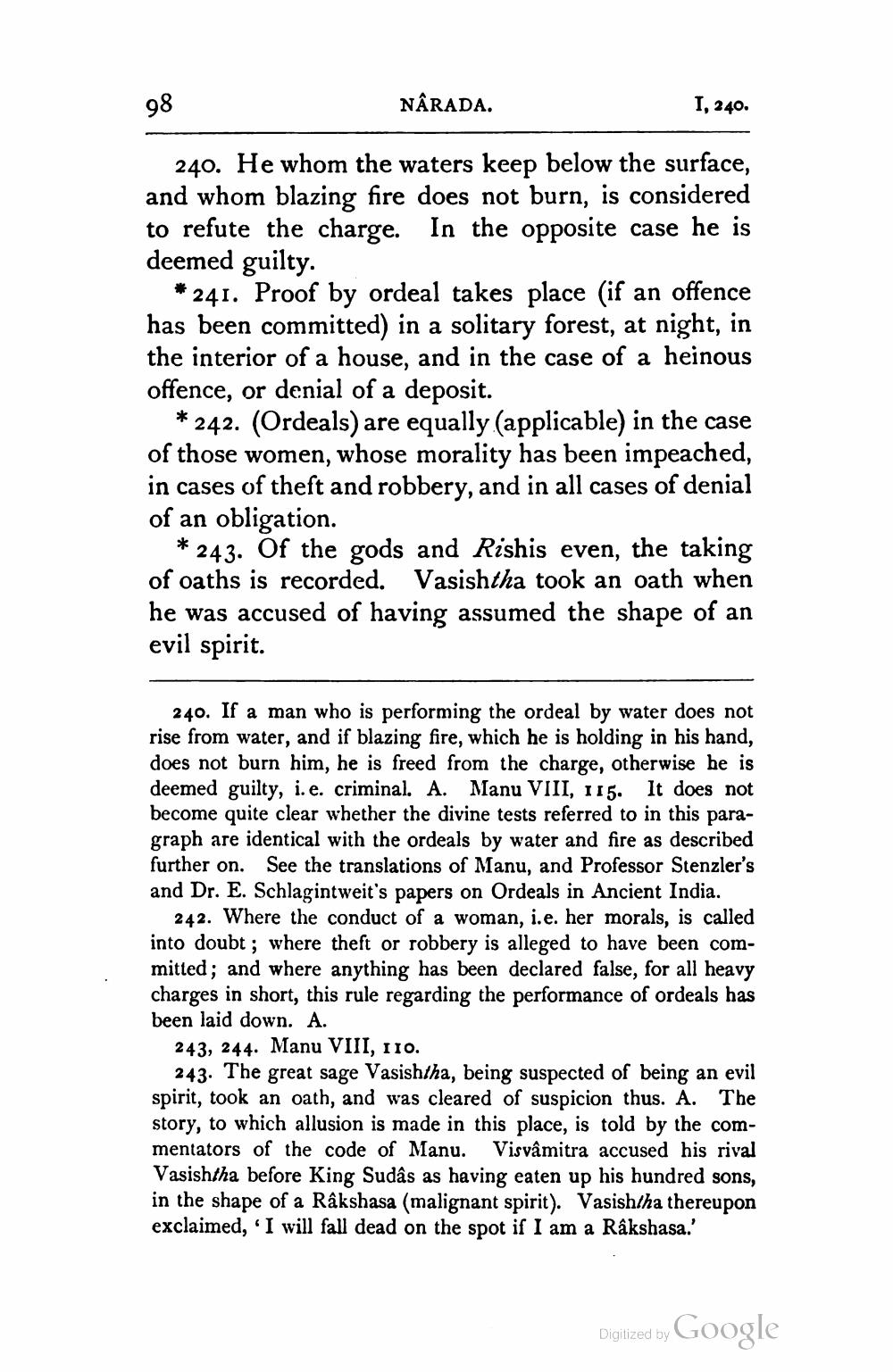________________
98
NÂRADA.
1, 240.
240. He whom the waters keep below the surface, and whom blazing fire does not burn, is considered to refute the charge. In the opposite case he is deemed guilty.
*241. Proof by ordeal takes place (if an offence has been committed) in a solitary forest, at night, in the interior of a house, and in the case of a heinous offence, or denial of a deposit.
* 242. (Ordeals) are equally (applicable) in the case of those women, whose morality has been impeached, in cases of theft and robbery, and in all cases of denial of an obligation.
* 243. Of the gods and Rishis even, the taking of oaths is recorded. Vasishtha took an oath when he was accused of having assumed the shape of an evil spirit.
240. If a man who is performing the ordeal by water does not rise from water, and if blazing fire, which he is holding in his hand, does not burn him, he is freed from the charge, otherwise he is deemed guilty, i.e. criminal. A. Manu VIII, 115. It does not become quite clear whether the divine tests referred to in this paragraph are identical with the ordeals by water and fire as described further on. See the translations of Manu, and Professor Stenzler's and Dr. E. Schlagintweit's papers on Ordeals in Ancient India.
242. Where the conduct of a woman, i.e. her morals, is called into doubt; where theft or robbery is alleged to have been committed ; and where anything has been declared false, for all heavy charges in short, this rule regarding the performance of ordeals has been laid down. A.
243, 244. Manu VIII, 110.
243. The great sage Vasishtha, being suspected of being an evil spirit, took an oath, and was cleared of suspicion thus. A. The story, to which allusion is made in this place, is told by the commentators of the code of Manu. Visvâmitra accused his rival Vasishtha before King Sudas as having eaten up his hundred sons, in the shape of a Rakshasa (malignant spirit). Vasishtha thereupon exclaimed, I will fall dead on the spot if I am a Rakshasa.'
Digitized by Google




